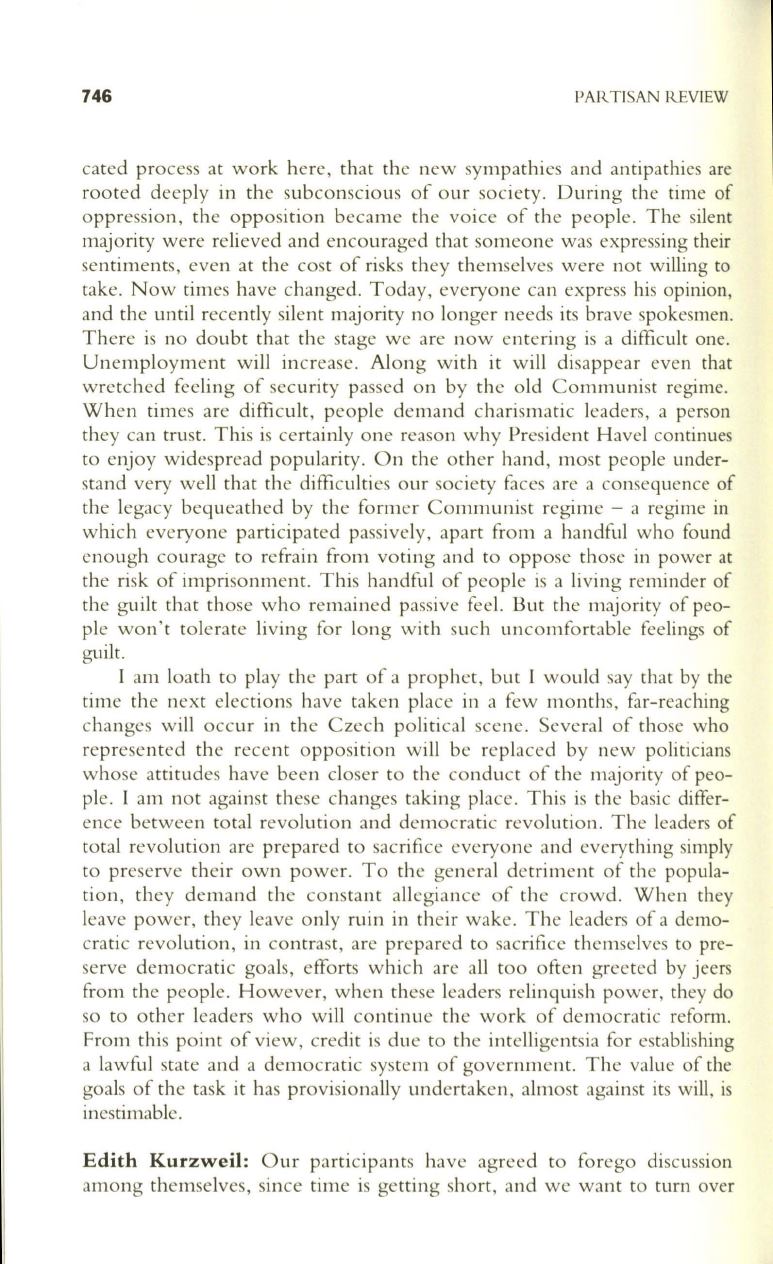
746
PARTISAN IUVIEW
cated process at work here, that the new sympathies and antipathies are
rooted deeply in the subconscious of our society. During the time of
oppression, the opposition became the voice of the people. The silent
majority were relieved and encouraged that someone was expressing their
sentiments, even at the cost of risks they themselves were not willing to
take. Now times have changed. Today, everyone can express his opinion,
and the until recently silent majority no longer needs its brave spokesmen.
There is no doubt that the stage we are now entering is a difficult one.
Unemployment will increase. Along with it will disappear even that
wretched feeling of security passed on by the old Communist regime.
When times are difficult, people demand charismatic leaders, a person
they can trust. This is certainly one reason why President Havel continues
to enjoy widespread popularity. On the other hand, most people under–
stand very well that the difficulties our society faces are a consequence of
the legacy bequeathed by the former Communist regime - a regime in
which everyone participated passively, apart from a handful who found
enough courage to refrain from voting and to oppose those in power at
the risk of imprisonment. This handful of people is a living reminder of
the guilt that those who remained passive feel. But the majority of peo–
ple won't tolerate living for long with such uncomfortable feelings of
guilt.
I am loath to play the part of a prophet, but I would say that by the
time the next elections have taken place in a few months, far-reaching
changes will occur in the Czech political scene. Several of those who
represented the recent opposition will be replaced by new politicians
whose attitudes have been closer to the conduct of the majority of peo–
ple. I am not against these changes taking place. This is the basic differ–
ence between total revolution and democratic revolution. The leaders of
total revolution are prepared to sacrifice everyone and everything simply
to preserve their own power. To the general detriment of the popula–
tion, they demand the constant allegiance of the crowd. When they
leave power, they leave only ruin in their wake. The leaders of a demo–
cratic revolution, in contrast, are prepared to sacrifice themselves to pre–
serve democratic goals, efforts which are all too often greeted by jeers
from the people. However, when these leaders relinquish power, they do
so to other leaders who will continue the work of democratic reform.
From this point of view, credit is due to the intelligentsia for establishing
a lawful state and a democratic system of government. The value of the
goals of the task it has provisionally undertaken, almost against its will, is
inestimable.
Edith Kurzweil:
Our partlClpants have agreed to forego discussion
among themselves, since time is getting short, and we want to turn over


